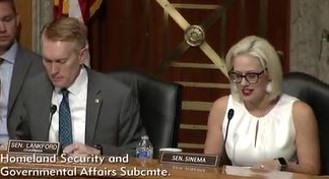DOE’s Request for Information on Reducing Regulation and Controlling Regulatory Costs
Summary

Scholarly analysis of the potential effects of particular rulemakings from federal agencies, and advice to Congress on how to improve the rulemaking process by GW Regulatory Studies Center scholars.

"Your input and expertise during the drafting of the Early Participation in Regulations Act of 2019 and SMART Act of 2019 was invaluable."
Senator Kyrsten Sinema (D-AZ)
Senator James Lankford (R-OK)
Joint statement
Examining How Small Businesses Confront and Shape Regulations
Prepared Statement for the Record for the U.S. Senate Committee on Small Business & Entrepreneurship hearing on "Examining How Small Businesses Confront and Shape Regulations."
Prepared Statement of Susan E. Dudley, U.S. Senate Homeland Security and Governmental Affairs Subcommittee on Regulatory Affairs hearing on Agency Use of Science in the Rulemaking Process: Proposals for Improving Transparency and Accountability.
NHTSA’s Federal Automated Vehicles Policy: Accelerating the Next Revolution In Roadway Safety
The National Highway Traffic Safety Administration’s (NHTSA) Federal Automated Vehicles Policy establishes how the agency will address driverless car technology through its current regulatory framework and identifies new regulatory tools that could be used in the future.
EPA’s proposed rule sets state-by-state carbon intensity targets for the production of electricity. States are expected to adopt some form of economic incentive regulatory system to achieve these targets, but there has been a great deal of confusion about how, exactly, such a system should work.
Public Comment to the Commission on Evidence-Based Policymaking
Regulation may have a larger impact on society than any other single federal policymaking process. Regulations protect public health, promote economic growth, and help preserve our environment. Various estimates of regulation’s impact on society vary from over $260 billion to over $2 trillion. By comparison, the total of all federal funding for research and development, for instance, is less than $160 billion a year.
